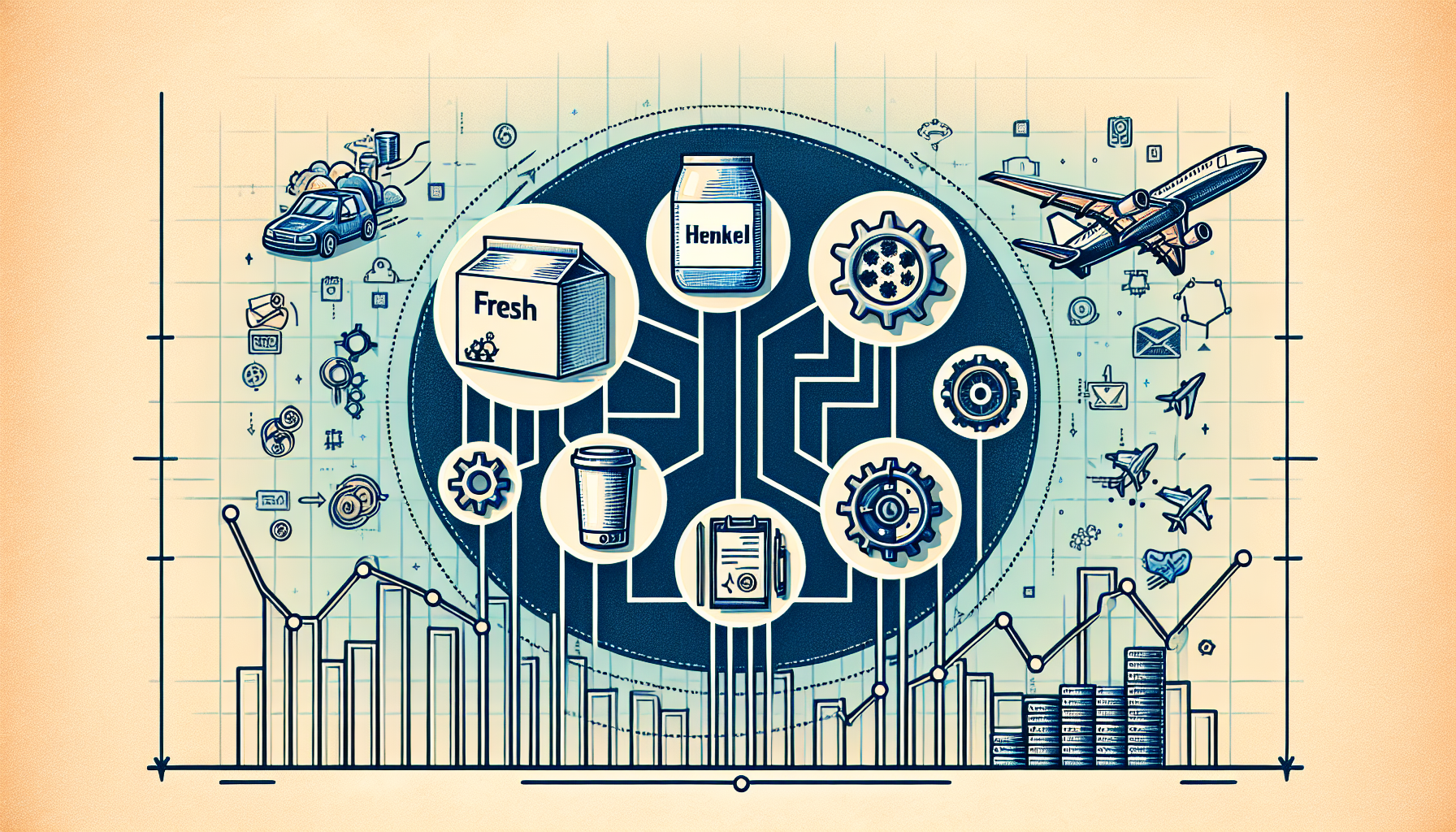HelloFresh Disappoints with Outlook, Henkel Announces Share Buyback, and Gea Raises Dividend
In a week filled with corporate updates, several major companies have made headlines with their financial performances and strategic decisions. From HelloFresh's disappointing outlook to Henkel's share buyback announcement, and Gea's dividend increase, the market has been buzzing with activity. This article delves into the details of these developments, providing insights into what they mean for investors and the broader market.
HelloFresh's Disappointing Outlook
HelloFresh, the Berlin-based meal kit company, has recently released its financial outlook, and it has left investors less than thrilled. The company, which had been a pandemic darling, saw its shares drop significantly after it revised its revenue and profit forecasts downward. The primary reasons cited for this adjustment include rising operational costs, supply chain disruptions, and a slowdown in customer acquisition.

Despite the initial surge in demand during the COVID-19 pandemic, HelloFresh is now grappling with the challenges of sustaining growth in a post-pandemic world. The company has been investing heavily in marketing and technology to retain customers and attract new ones, but these efforts have yet to yield the desired results. As a result, HelloFresh's stock has taken a hit, and analysts are now questioning the company's ability to maintain its competitive edge in the increasingly crowded meal kit market.
Impact on the Meal Kit Industry
HelloFresh's struggles could have broader implications for the meal kit industry as a whole. As one of the largest players in the market, its performance is often seen as a bellwether for the sector. If HelloFresh continues to face headwinds, it could signal a more challenging environment for other meal kit companies, potentially leading to consolidation or even exits from the market.
Henkel Announces Share Buyback Program
In contrast to HelloFresh's woes, Henkel, the German consumer goods giant, has announced a significant share buyback program. The company plans to repurchase up to €1 billion worth of its own shares over the next two years. This move is seen as a sign of confidence in Henkel's financial health and its ability to generate strong cash flows.
Henkel's decision to buy back shares is also a strategic one. By reducing the number of shares outstanding, the company aims to boost earnings per share (EPS) and return value to shareholders. This is particularly important in a market environment where investors are increasingly focused on shareholder returns.

What This Means for Investors
For investors, Henkel's share buyback program is a positive signal. It indicates that the company is committed to returning capital to shareholders and is confident in its future prospects. Additionally, the buyback could provide support for Henkel's stock price, making it an attractive option for value-oriented investors.
Gea Grows and Raises Dividend
Another German company making headlines is Gea, a leading supplier of process technology and equipment. Gea has reported strong financial results, with revenue and profits both exceeding expectations. The company has also announced an increase in its dividend, further rewarding shareholders.
Gea's growth has been driven by strong demand in its key markets, including the food, beverage, and pharmaceutical industries. The company has also benefited from its focus on innovation and sustainability, which has helped it win new contracts and expand its customer base.
Gea's Strategic Focus
Gea's success can be attributed to its strategic focus on high-growth markets and its commitment to sustainability. The company has been investing in new technologies and solutions that help its customers reduce their environmental impact, which has become a key differentiator in the market. This focus on sustainability is likely to continue driving Gea's growth in the coming years.
Delta Lowers Forecast, Oracle Disappoints with Earnings
On the other side of the Atlantic, Delta Air Lines has lowered its revenue forecast for the current quarter, citing rising fuel costs and weaker-than-expected demand. The airline industry has been facing a challenging environment, with fluctuating travel demand and increasing operational costs. Delta's revised forecast has raised concerns about the broader airline sector's ability to recover from the pandemic.
Meanwhile, Oracle, the American software giant, has disappointed investors with its latest earnings report. The company missed revenue and profit estimates, leading to a decline in its stock price. Oracle's struggles are attributed to slower growth in its cloud business and increased competition from other tech giants.
Implications for the Tech and Airline Sectors
Delta's lowered forecast and Oracle's disappointing earnings highlight the challenges facing the airline and tech sectors. For airlines, the road to recovery remains uncertain, with fuel costs and travel demand continuing to be volatile. For tech companies, the increasing competition and slower growth in key segments like cloud computing are becoming significant headwinds.
Conclusion: What These Developments Mean for the Market
The recent corporate updates from HelloFresh, Henkel, Gea, Delta, and Oracle provide a mixed picture of the current market environment. While some companies like Henkel and Gea are showing resilience and rewarding shareholders, others like HelloFresh and Oracle are facing significant challenges.
For investors, these developments underscore the importance of staying informed and being selective in their investments. Companies that can navigate the current challenges and capitalize on growth opportunities are likely to outperform in the coming weeks. On the other hand, those that struggle to adapt may face further headwinds.
In the short term, the market is likely to remain volatile, with investors closely watching corporate earnings and economic indicators. However, for those willing to do their homework, there are still opportunities to be found in both established companies and emerging players.

